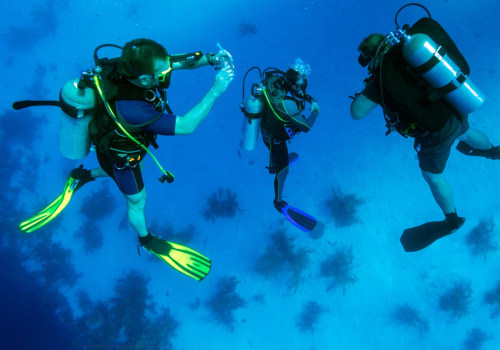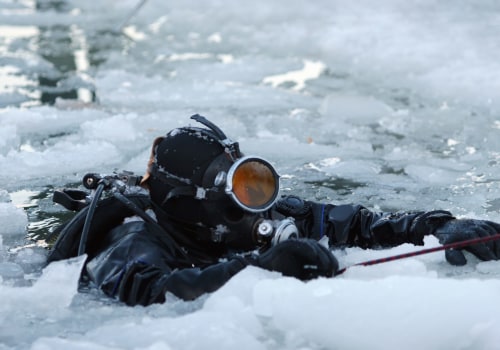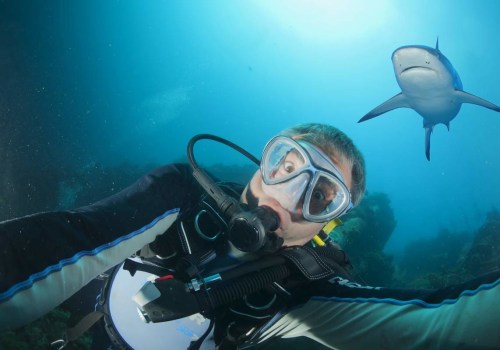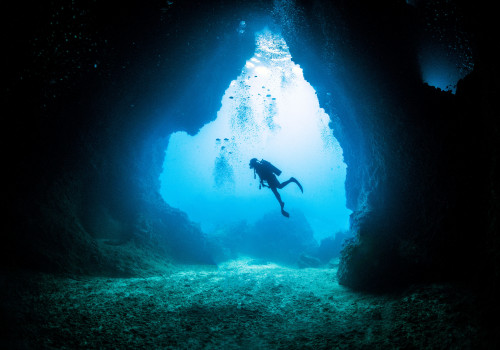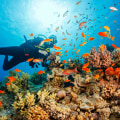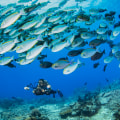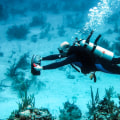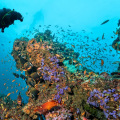Never hold your breath while climbing. Your ascent should be slow and your breathing should be normal. If you feel confused or afraid during a dive, stop, try to relax, and analyze the problem. The most commonly used phrase: “Plan your dive, dive according to your plan” is a key element to staying alive.
Planning diving in British Columbia (before computers existed) required time to calculate the maximum projected depth and the amount of time spent at the bottom. The residual nitrogen time should be calculated from previous dives, if any. We, as human beings, don't breathe naturally in the underwater world, but it's surprising how many divers don't clean, care for, repair, or even control their equipment before diving. Diving equipment is designed and used to keep the diver alive underwater.
When we head to the water, we need to prepare our equipment for diving and then work with a friend or carry out an independent test of the equipment. If the valves are leaking or the O-rings are faulty, we must fix these problems before entering the water. After a dive, we must remember to clean and store our equipment in a safe and secure place. Factors such as extreme temperatures can damage the seals, soft products, and even the O-rings of our life support equipment.
Finally, we need to take out the equipment from time to time to make sure everything works. If things are messed up, we don't want to find the problem just before we jump into the water. That's why proper service and maintenance are critical. Remember to visit your local dive shop when the time is right and make sure everything is functional and up to date.
We want to have fun diving, not face life-threatening problems. Your equipment allows you to practice this sport, why wouldn't you want me to be in top shape? When you first started diving, you learned a number of things that you should never do while diving. In a previous article 10 Things You Shouldn't Do If You Love Scuba Diving and the Ocean, I covered ten things you shouldn't do if you want to protect the ocean. But what about things that you should never do while scuba diving? There are certain activities that can put your safety at risk while scuba diving. Here are 10 things that you should never do while scuba diving: 1.
Never hold your breath
.Holding your breath while ascending can cause serious injury due to decompression sickness or “the bends”. Always remember to breathe normally during ascent and descent. 2.
Never dive beyond your limits
. Make sure that you are aware of your own abilities and limitations when it comes to scuba diving.Don’t push yourself too hard and always stay within your comfort zone when it comes to depths and times underwater. 3.
Never ignore safety protocols
. Before entering the water make sure that all safety protocols are followed such as checking your gear for any potential problems or malfunctions. 4.Never dive alone
.Always make sure that you have a buddy with you when scuba diving as this will help ensure that help is available if needed in an emergency situation. 5.
Never forget about buoyancy control
. Buoyancy control is essential for safe scuba diving as it helps maintain neutral buoyancy which is important for avoiding damage to coral reefs or other marine life as well as avoiding potential hazards such as entanglement in fishing lines or nets. 6.Never ignore signs of distress
.If you notice any signs of distress from yourself or another diver such as difficulty breathing or confusion then it is important that you take action immediately by stopping the dive and seeking help if necessary. 7.
Never forget about decompression stops
. Decompression stops are essential for avoiding decompression sickness which can be fatal if not treated properly so make sure that you follow all safety protocols when it comes to decompression stops during a dive. 8.Never ignore currents
.Currents can be dangerous so make sure that you are aware of any currents in the area before entering the water and take appropriate action such as using a line or anchor if necessary in order to stay safe during a dive. 9.
Never forget about marine life
. Always remember that marine life can be unpredictable so make sure that you stay at least 10 feet away from any marine life in order to avoid potential injury or harm from them during a dive. 10.Never forget about basic safety rules
.Always remember basic safety rules such as never touching anything underwater unless absolutely necessary and never swimming too close to other divers in order to avoid potential collisions or accidents during a dive.
